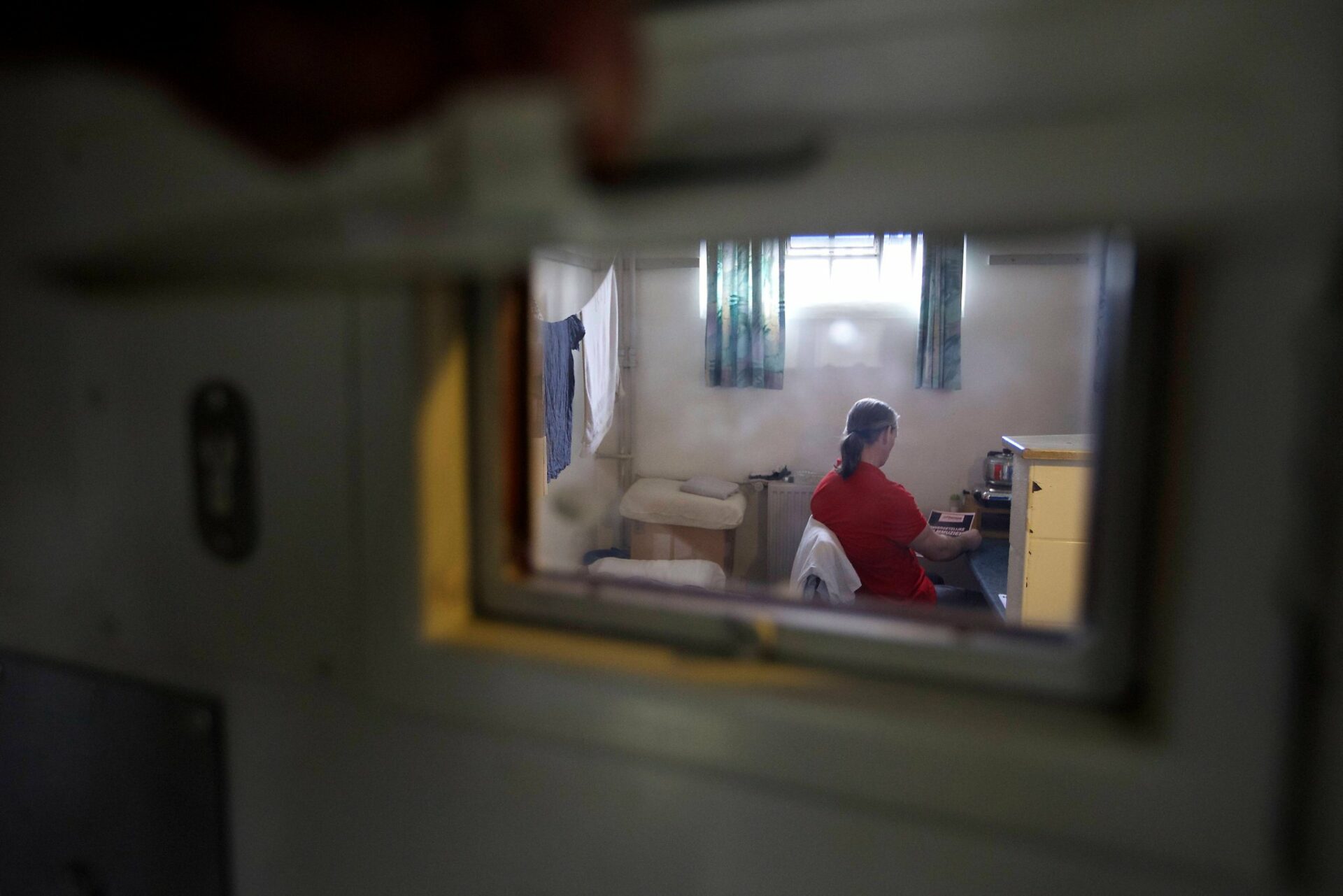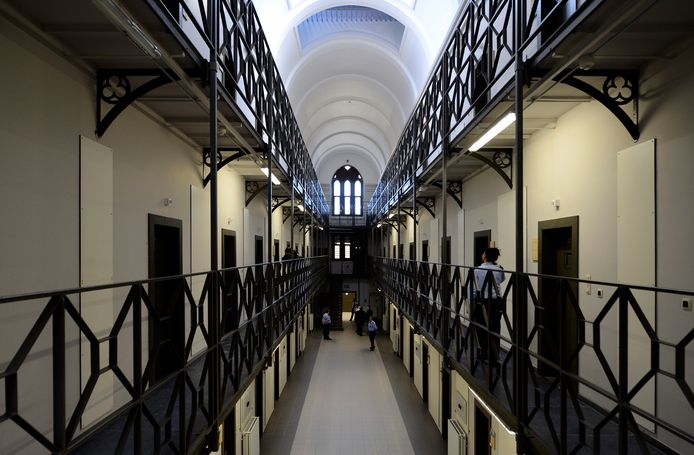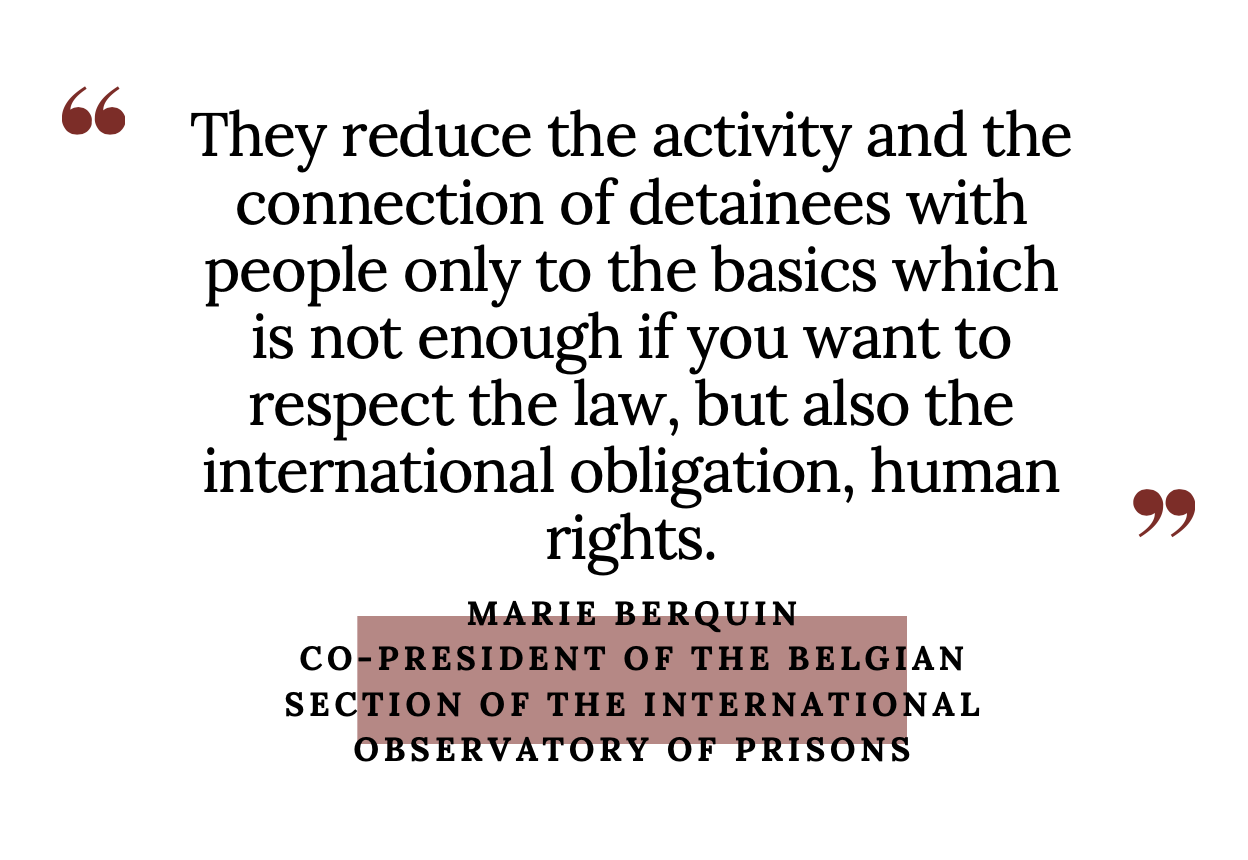Already a problem prior to the pandemic, Brussels prisons have seen a growing population which has led to overcrowding that only continues to escalate. During the pandemic, prison guards across Belgium went on strike in November and Christmas last year to draw attention to the lack of support, poor working conditions and underfunding.
Despite their efforts, not much has changed. Prison overcrowding continues to grow exponentially without the proportionate space, staffing and resources.
Last Thursday, 30 June, around 50 external support staff at the Saint-Gilles prison who provide detainees with social services gathered outside the prison protesting their lack of access to those they serve. Prison residents are reliant on these staff members to provide them with mental health, legal, medical, educational and other services they are entitled to. Saint-Gilles is also a pre-trial detention prison, meaning that those detained there await trial and are yet to be found guilty.
All prisons in Belgium have been experiencing overcrowding for the past 20 years. Pre-trial institutions like Saint-Gilles however are especially bad because of the high turnover. While other countries have a time limit for how long detainees awaiting trial can stay in the pre-trial detention centre, Belgium does not. Because of the Covid-19 pandemic, fewer trials were carried out and often took longer to put on which also meant more people had to stay at Saint-Gilles for a longer time.
Big investigations often also bring in a large number of detainees at the same time which can also cause overcrowding. For example, the recent Operation Sky ECC identified 888 suspects and therefore brought in a lot more arrests than is normal at one time.
Over time, however, overcrowding only worsens, Marie Berquin, the Co-President of the Belgian section of the International Observatory of Prisons (OIP), said, because new laws only make sentences harsher and longer rather than reducing them. Also, early release becomes harder to obtain with new laws which only further delay the turnover of the prison population.
Access denied, rights obstructed
Organised by Fidex – the Brussels Federation of Institutions for Inmates and Former Prisoners – Thursday's demonstration highlighted the fact that only five members of the outside support groups have been able to enter the prison within a half-day since 15 June. Earlier in the year, it was 20, while before the pandemic could be up to 70.
"The Principles Act 2005 also provides that avoidable adverse effects of detention should be prevented and that detainees are entitled to psychosocial support," Kris Meurent, president of Fidex, said in a press release. "In this sense, the external services that we represent play a fundamental role in the smooth running of incarceration and respond to the exercise of the fundamental rights of detainees."
Meurent also mentioned that even those workers who have been able to enter the facility to provide services have had to do so in a 'social corridor,' a common room which does not allow for any confidentiality during conversations.
A similar problem of overcrowding, restrictions and therefore violation of detainees’ rights has been present at Berkendael, the women’s section of the Forest prison.

An inmate in a Brussels prison. Credit: Belga
While there are social workers and psychologists who work within the prison, Berquin said they are not there to help the prisoners but rather to make a report in regard to their case. For help, detainees rely on external workers.
"They reduce the connection of detainees with people only to the basics which is not enough if you want to respect the law, but also the international obligation, human rights," Bequin said. "They have to have access to psychologists and social workers and teachers and lawyers and family correctly, but not like this."
Extent of overcrowding
The current capacity of the Saint-Gilles prison is 850, though on the Federal Justice Department website it is listed at 502. This is due to the fact that originally the prison was built for the 502 capacity but later cells meant for one person were equipped with bunk beds to accommodate two people, despite the fact that the size of the cell remained the same, the Europe Legal Director at Fair Trials, a criminal justice watchdog organisation, told The Brussels Times.
At the beginning of February, the prison housed 866 detainees, now this number stands at 950, Berquin said. This means that the current population of the prison is nearing double that of what the prison was intended to serve at construction.
Belgium is one of the five EU members with the most overcrowded prisons, according to the Council of Europe Space I report, standing at 108.4% density.
According to La Libre reports, whenever the population exceeds 850, the unions of prison officers, who are already facing a staffing shortage, threaten to go on strike. Whenever the officers strike, the police and, more recently, the army is brought in to carry out the work, despite their lack of training in dealing with prison populations. Berquin said this can be detrimental, especially when a strike goes on for an extended period of time, like in 2016 when officers went on strike for over several months.
The services provided by external workers are mandated by the region and community and therefore must be guaranteed. The access to these services is governed by agreements between for example the Federal State, the French Community and the Walloon Region which guarantee access in an emergency, crisis and social movement situations, according to Fidex.
Related News
- 'Let us in!': Saint-Gilles prison outreach staff protest entry restrictions
- Belgium ordered to tackle worsening situation in prisons
- Prison overcrowding in Belgium delays application of ‘shorter sentences’
Overcrowding in itself can pose multiple threats, including worsening mental health, poor sanitary conditions, an increase in violence and self-harm and so forth. When services from external support workers are restricted and the needs of detainees grow with the population, mental health support cannot be consistently ensured and legal deadlines are missed, like for immigration procedures, the Legal Director at Fair Trials said.
"This can hugely impact — and on the long term — a person’s life, as well as their families’ life – despite the person being presumed innocent when held in pre-trial detention and having not yet been found guilty by a court," the director said.
The way forward
Despite ongoing calls to tackle overcrowding, the situation only seems to be getting worse. On a day-to-day basis, there is no solution to overcrowding.
The long-term solution to overcrowding, especially in pre-trial detention prisons like Saint-Gilles, is a reform to the legislative system and the extent to which pre-trial detention is applied, the Legal Director said. "We also need prosecutors to make fewer pre-trial detention orders — this is meant to be an exceptional measure as it restricts the fundamental right to liberty and to the presumption of innocence — but the number of detainees shows that it is vastly overused."
Containing people before sentencing is only meant to be applied in a case where the judge suspects the person will evade justice, destroy evidence or corroborate with others on their case, or in cases where detention is absolutely necessary to maintain public safety. Berquin said that because it all rests on the judge’s interpretation of the law, it can be applied too broadly.
The interpretation that if a person does not have Belgian nationality, they will flee the country is a very prevalent conclusion, which is not always the case.
During the pandemic, some 200 prisoners were released six months early to account for the overcrowding. This was however short-lived. Minister for Justice Vincent Van Quickenborne now wants to extend this notion until 2024.


